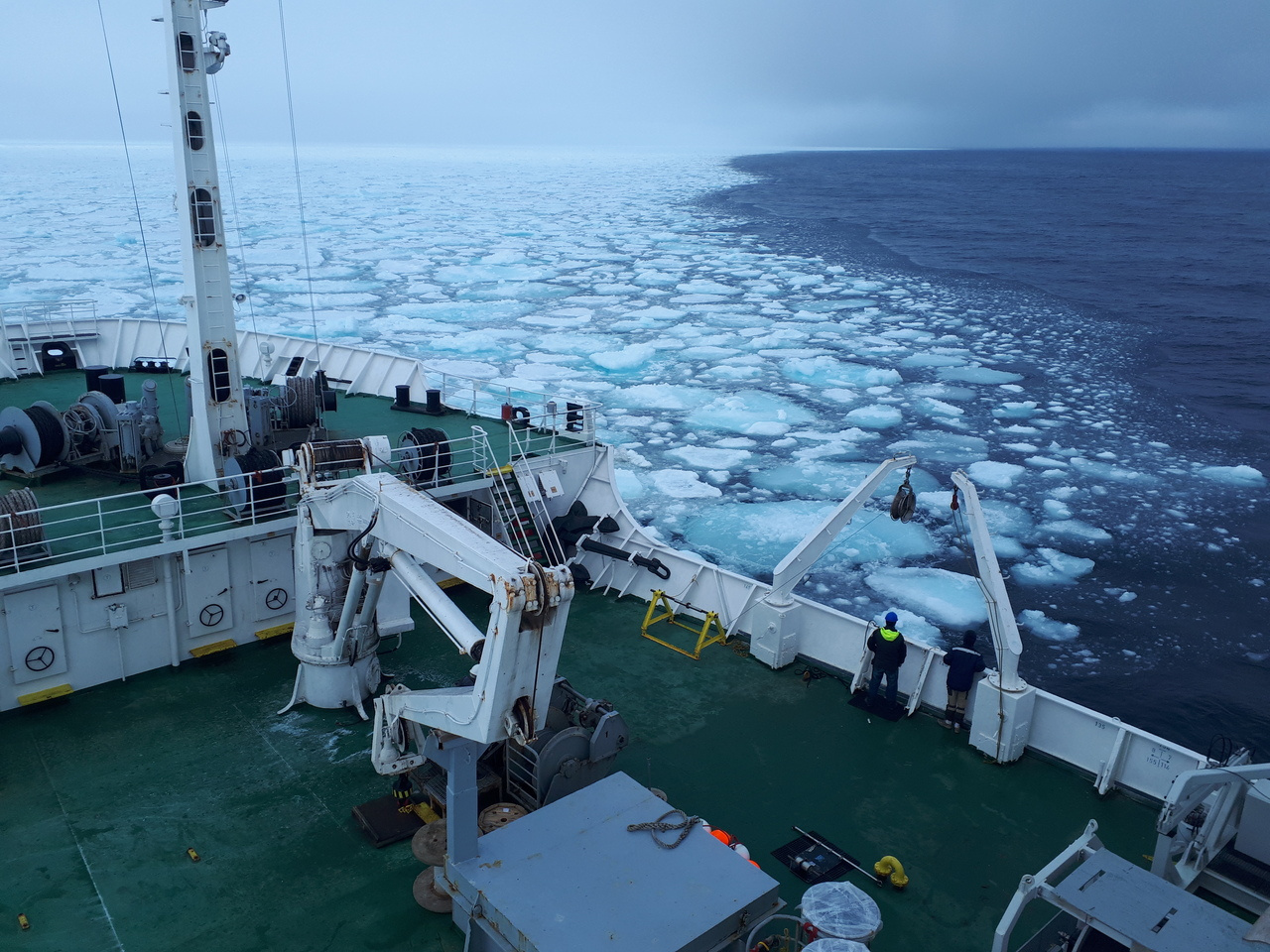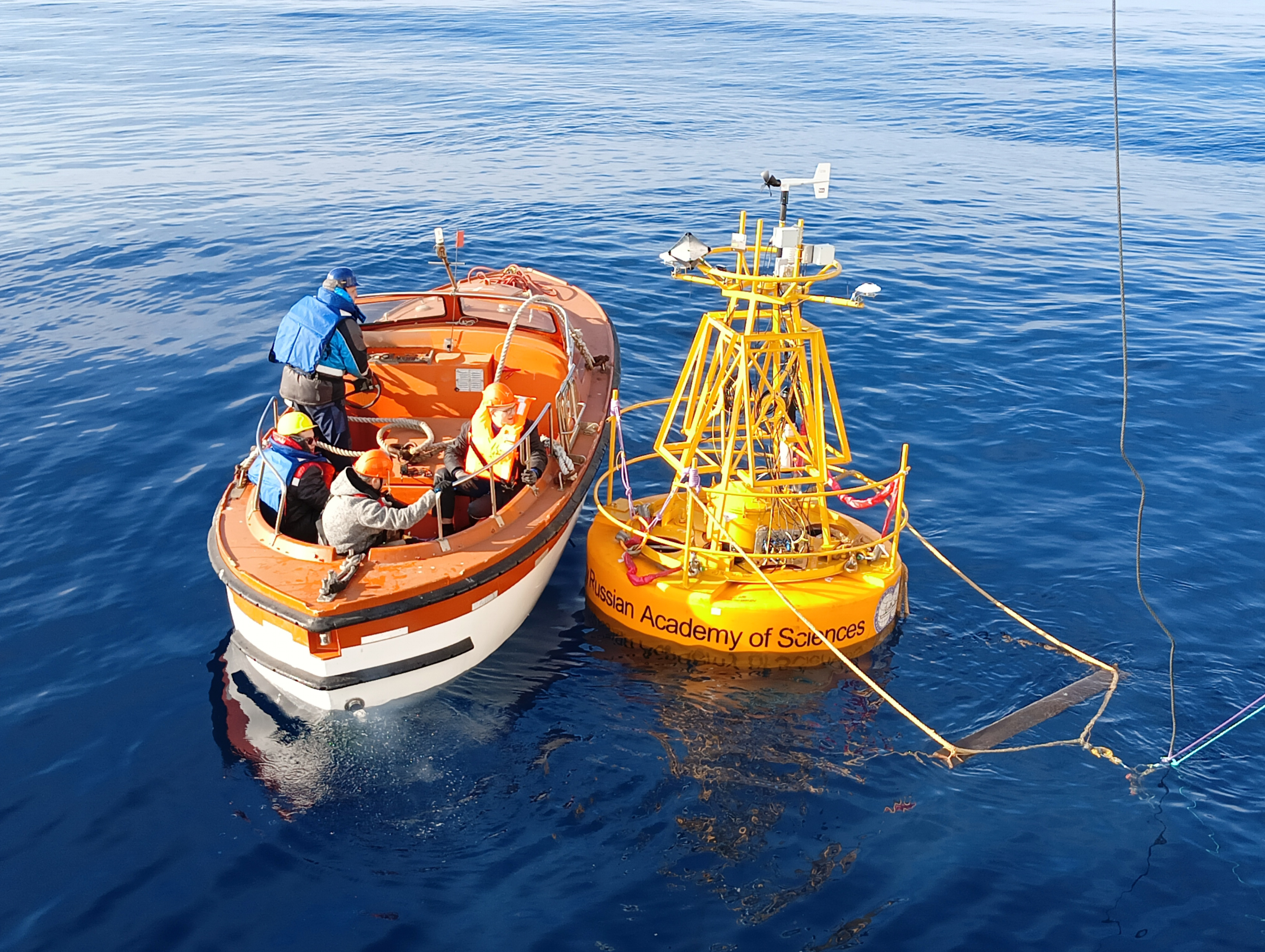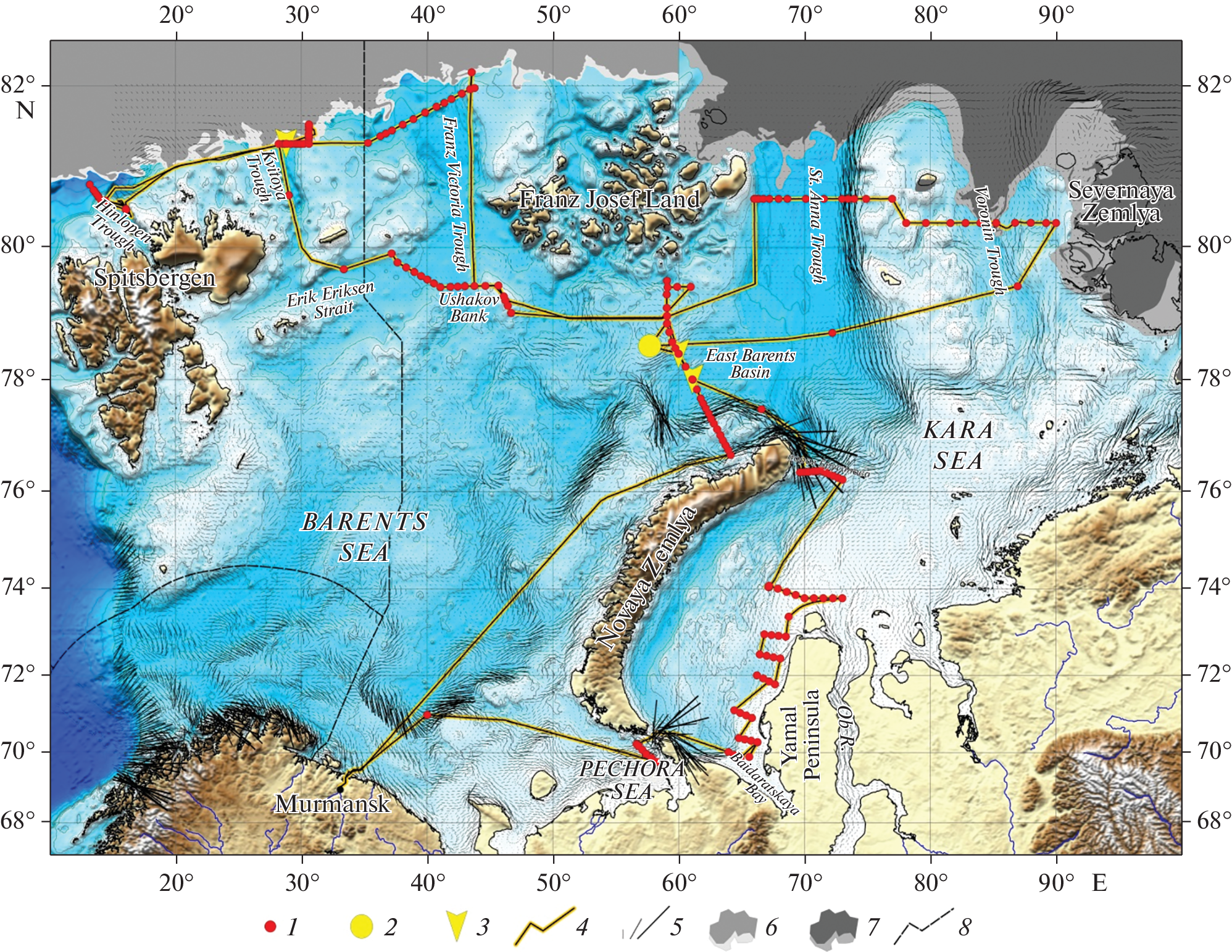National system for monitoring climate change and climate-active substances in the western Eurasian Arctic
Published in Earth & Environment

The geological record of environmental and climate change in the seas of the western Eurasian Arctic (or European Arctic) is the key to unraveling the climate changes observed today on the nearby continents and in the ocean. The rapid climatic shift event since the mid‑2000s has led to an anomalous increase in ocean heat content in the northern part of the Barents Sea, the hotspot of global warming. Multidisciplinary research in the Barents and Kara seas is carried out in July–August 2024 as part of one of the largest Russian Arctic expeditions of this year on the RV Akademik Mstislav Keldysh (96th cruise) under the program of the Shirshov Institute of Oceanology, Russian Academy of Sciences in the European Arctic. New data on "atlantification" and methane emission were obtained on the Eurasian Western Arctic Shelf. The research is aimed at developing a national system for monitoring climate change and climate-active substances based on the use of moored autonomous platforms, observatories, and shipboard observations.

Follow the Topic
-
Oceanology

Oceanology is a peer-reviewed journal dedicated to all areas of marine sciences.



Please sign in or register for FREE
If you are a registered user on Research Communities by Springer Nature, please sign in